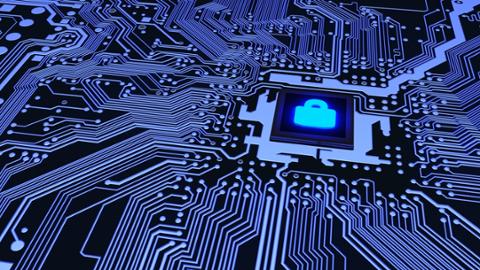
By 2025, Millennials will make up 75 percent of the global labor force—the workforce of the future is nearly here. As digitally advanced, purpose-driven change seekers, Millennials are transforming every industry. And this is no different in the world of cybersecurity. In fact, it’s arguably already there for some areas—more than 70 percent of the ethical hacker community is under the age of 30.
As with generations before, Millennials think differently about business and employment. Driven by technology, they have grown up proficient in skills unique to the workforce they’re entering. No longer is the workforce of the future solely motivated by a paycheck to support families and communities; for today’s youngest workers, purpose, skill variety, autonomy, and task significance matter. If they don’t see any of that, they’re off to the next opportunity.
However, statistics still show that businesses aren’t changing their ways to attract and retain this growing segment of the workforce. According to Gallup, less than 30 percent of Millennials are engaged in their work. Many employers don’t understand the elements Millennials seek in a working environment, and how this differs from how older generations want to live and work.
In speaking on how to foster Millennials in the workplace, global author and leadership expert Simon Sinek urges corporations to take on the task at hand. He calls for working environments where Millennials can build confidence, practice better cooperation, balance the digital world, understand delays in instant gratification, and learn about the joy earned through hard work.
It’s a company’s responsibility to engage with this workforce of the future and cultivate moments that drive innovation and creativity. For me, this means that we have to think about the experienced meaningfulness and experienced responsibility our Millennial employees feel with the work they do, and have a clear knowledge of results from their activities. Not an easy task for managers, but an investment that has a strong ROI for the workforce of the future.
What Does the Cybersecurity Industry Have to Offer?
Based on my experience, there are a ton on parallels with what the cybersecurity industry can offer and what Millennials need and want from their careers:
Mission they can believe in: Cybersecurity is flexible; you can find a mission or meaning in your work in many ways—whether it’s the act of protecting others, the constant evolution and learning that’s required to keep up, or the financial gain. For those who grew up technically savvy, cybersecurity allows them to take advantage of some of these inherent skills while feeding their curiosity.
The chance to make an impact: Every industry is touched by cybersecurity, making the opportunity to make an impact extremely far-reaching. Especially as the world continues to modernize and move online, we’ll continue to need talent in every geography.
Continuous and collaborative learning opportunities: The community at hand is one that always wants to learn and improve, and values the sharing of knowledge and teaching others. Within cybersecurity, you can connect with others and work toward the mission even from the outside of an organization—through contributing to projects or hacking on products and systems via bug bounty programs and vulnerability disclosure programs. Opportunities to collaborate and knowledge share are endless.
Considering there will be more than 3.5 million unfilled cybersecurity roles by 2021 (according to Cybersecurity Ventures), organizations must look to Millennials to help bolster their security workforce and adopt the necessary means to keep them engaged. But it’s not a one-way supply and demand equation. The cybersecurity industry has heaps to offer the new era of workers, and I urge more to explore how to break into the field.
Bug bounty programs and the ethical hacking community have increasingly become a more attractive (and lucrative) avenue for Millennials around the world to garner their curiosity and develop security skills. Around 81 percent of current hackers cite their bug hunting experience as helping them get a job in cybersecurity.
It’s no longer only about extrinsic (recognition, cash, perks) motivations, but intrinsic (purpose, impact) ones as well. Ethical hacking offers both, providing passion in the challenge, camaraderie, education, and professional development opportunities—all things Simon Sinek calls for to achieve successful engagement. In fact, when surveyed on why they hunt for bugs, hackers cited the challenge, joy, and professional and educational development opportunities as the top three reasons, with money coming in afterward. And for reference, the average yearly payouts of the top 50 hackers is roughly $145,000.
Bug hunting is also an incredibly flexible job. Half of ethical hackers bug hunt on top of a normal nine-to-five job, and 22 percent consider bug hunting to be their full-time profession. This flexibility to work whenever and wherever is the type of working environment is what keeps Millennials happy.
Building for the future
There is no denying that today’s workforce is not the same as it was 50 years ago. We should be building for long-term growth and employee retention, focusing our efforts on addressing the workforce of the future and giving them the flexibility to work how they want to while providing a sense of purpose, the ability to make an impact, and a commitment to learning.
Change is hard, but companies that can adapt to the changing workforce will achieve long-term success. I caution that companies that have not started to make this change should act quickly.
Ashish Gupta is the President and CEO of Bugcrowd. He is based out of San Francisco, California.


